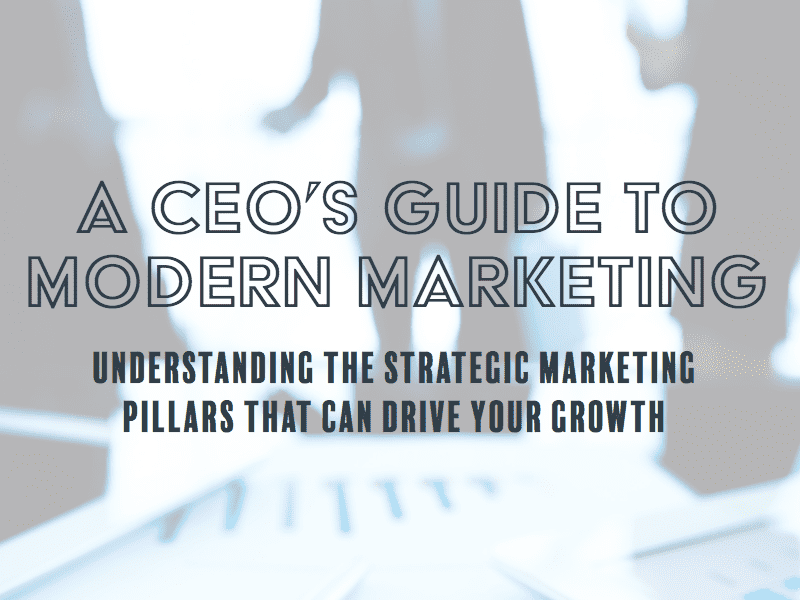The CMO Show: The Future of Outsourced Marketing Departments
Episode #4: The Future of Outsourced Marketing Departments
In today’s rapidly evolving business landscape, marketing departments are undergoing significant transformations. The need to compete, increasing specialization in marketing, and various other factors are driving this evolution. As a result, many companies are turning to outsourcing to access the skill sets they need in a cost-effective manner. In this article, we will explore the concept of outsourcing marketing functions and highlight its advantages.
Key Reasons for Outsourcing
Outsourcing provides companies with the opportunity to build a full-service marketing team without any waste. In today’s marketing environment, specialization is key. While strategic leadership often comes from a Chief Marketing Officer (CMO) or VP of Marketing with extensive experience, there are various other specialized roles required to create a successful marketing strategy. These roles include:
- Digital marketers
- SEO experts
- Web developers
- Content writers
By outsourcing, companies can assemble a team of specialists who excel in their respective areas, including the CMO, at cost-effective rates. This allows for a highly efficient marketing structure, enabling companies to allocate more budget towards outreach and visibility.
Simply put, outsourcing offers scalability and flexibility. As a company scales, its marketing needs may change from year to year. Outsourcing also allows companies to custom-build their marketing teams based on the specific skill sets they require at any given moment. This eliminates the need to constantly adjust staffing levels and provides companies with the agility to adapt to evolving market conditions effectively.
The Cost-Effectiveness of Outsourced Marketing
Outsourced marketing has gained popularity primarily due to its cost-effectiveness. By leveraging outsourcing, companies can optimize their marketing budget by reducing talent-related expenses. While hiring a full in-house marketing team, especially one with a CMO, can be prohibitively expensive for many companies, outsourcing allows them to access experienced professionals without breaking the bank.
Companies that outsource their marketing functions can achieve significant cost savings by eliminating the need for ongoing salaries, benefits, and other expenses associated with full-time employees. Outsourcing creates an opportunity to work with highly skilled professionals on a project-by-project or fractional basis, thus reducing overhead costs. These savings can then be redirected towards other essential areas of the business, such as product development or customer acquisition.
The Advantage of Scale and Flexibility
Outsourcing provides companies with the ability to quickly scale up their marketing efforts when needed. This is particularly beneficial for venture-backed or private equity-backed companies that receive funding and need to rapidly expand their marketing capabilities. Establishing an in-house marketing department to handle sudden growth can be time-consuming and challenging. By outsourcing, companies can tap into existing teams of experts who are ready to go. This significantly reduces the time and effort required to recruit and hire new employees, allowing companies to expedite their marketing efforts in a matter of weeks instead of months or even years.
Moreover, outsourcing provides flexibility. Companies can easily scale up or scale down their marketing operations based on real-time results and market conditions. This agility enables organizations to seize opportunities and respond to challenges more effectively. In contrast, having a permanent in-house team might constrain a company’s ability to adjust to changing demands.
While some companies consider freelancers as an alternative to outsourcing, this approach may result in a fragmented marketing team. Freelancers often lack in-depth knowledge of the company’s brand, go-to-market strategy, and collaborative working methods. In contrast, outsourcing allows for the creation of a fully integrated marketing team that follows standardized protocols and best practices. Such a team is more likely to work cohesively, staying on-message and on-brand. Additionally, outsourcing eliminates the need for clients to manage multiple freelancers individually, saving time and streamlining communication. By outsourcing, companies can have a proactive marketing model where the outsourced team takes care of all marketing needs, acting as an integrated part of the company. This leads to a seamless process and ensures efficient execution of marketing initiatives.
The Role of the Fractional CMO
The Chief Marketing Officer (CMO) is a crucial role within any marketing department. However, hiring a full-time CMO may not be financially feasible for many companies. Outsourcing provides an opportunity for companies to tap into the expertise and guidance of a fractional CMO.
Fractional CMOs are experienced marketing professionals who work on a part-time or project-based basis to provide strategic leadership. They participate in board meetings, executive leadership meetings, and strategic discussions, ensuring that marketing aligns with overall business goals. By integrating with the company and becoming part of the leadership team, fractional CMOs can effectively contribute to an organization’s growth by leveraging their expertise in marketing and business strategy.
Leveraging Marketing Technology
Technology plays a critical role in modern marketing departments. Marketing technology, or Martech, has evolved significantly over the past decade. Today, companies can access a wide range of technologies that provide valuable insights about website traffic, customer engagement, and predictive analytics. By outsourcing marketing functions, companies can benefit from the knowledge and expertise of specialists who stay up-to-date with the latest Martech developments. These specialists understand how to leverage technology to gain a competitive advantage, ensuring that companies keep pace with ever-changing trends. Martech, combined with the capabilities of outsourced marketing teams, enables companies to mine data effectively and fine-tune marketing strategies for optimal results.
Efficiency Through Process
Outsourcing requires a well-defined and efficient process. Outsourced marketing companies, such as Marketri, have refined their processes over time to ensure maximum efficiency and quality. With documented templates and best practices, outsourcing companies like Marketri know precisely how long tasks will take and can allocate the necessary resources accordingly. In contrast, in-house teams may face challenges when handling projects they have not tackled multiple times before. The lack of standardized processes leads to longer project timelines and potentially suboptimal outcomes. By outsourcing, companies benefit from a proven process that minimizes interruptions and mitigates potential risks.
In an ever-evolving marketing landscape, outsourcing has emerged as a powerful strategy for building and optimizing marketing departments. The advantages of outsourcing include cost-effectiveness, scalability, flexibility, access to specialized skills, and the ability to leverage marketing technology. By outsourcing marketing functions, companies can create efficient, integrated, and results-driven teams, while saving on costs and gaining a competitive edge. As companies embrace the future of marketing, outsourcing will continue to play a vital role in helping organizations achieve their business goals effectively and efficiently.
Want to see what Marketri can do for your growth potential? Schedule a call today with CEO Debra Andrews to discuss how we can help you develop a comprehensive marketing strategy tailored to your unique business objectives.





